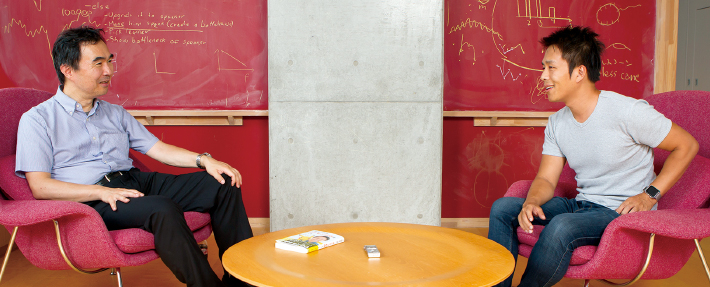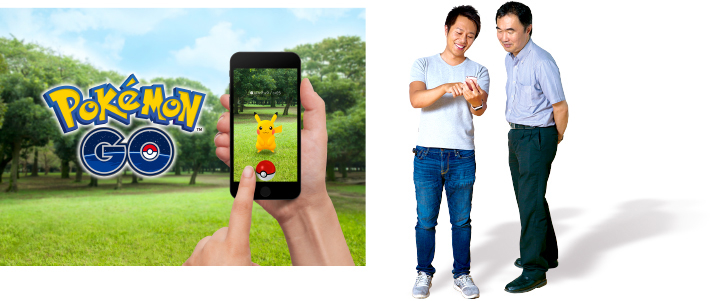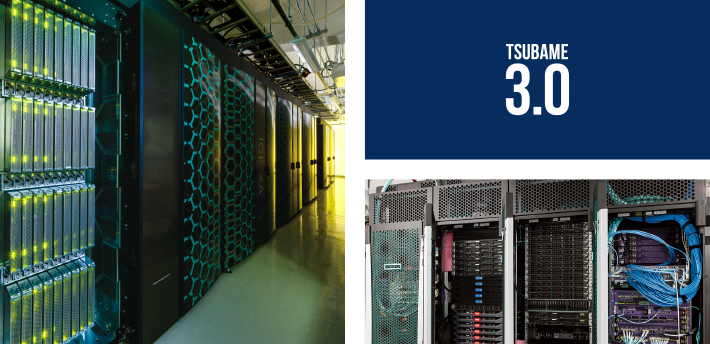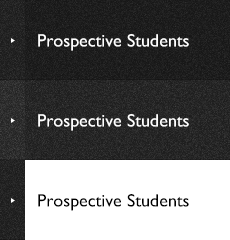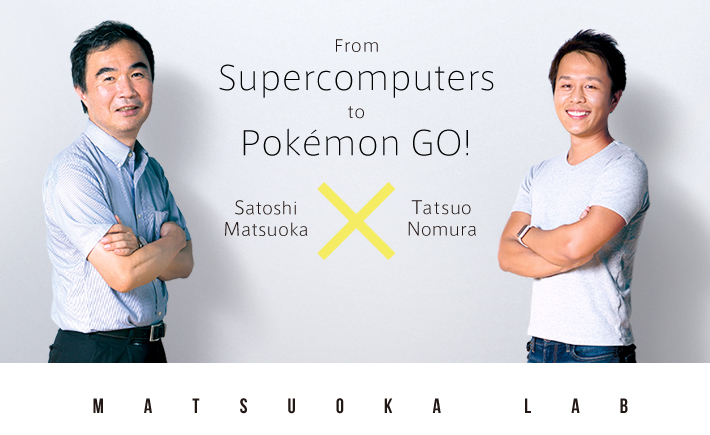
While being highly regarded for his work on the development of the Pokémon GO application, Tatsuo Nomura also did important work on supercomputers as a Tokyo Tech graduate student under Professor Satoshi Matsuoka. Nomura and his former supervisor Matsuoka met at the Ookayama Campus in late July 2017, just before the start-up of TSUBAME 3.0, one of the leading supercomputers in Japan. As colleagues who share the same passions, they reminisced about the time they spent together, talking about games, supercomputers, and overseas challenges.
From Nagano to Tokyo Tech to study supercomputers under Matsuoka
Nomura:I haven't been to Tokyo Tech in a while. It's a pleasure to see you again.
Matsuoka:It is great to see you, too. You were an undergraduate student at Shinshu University when we met for the first time.
Nomura:Yes. I was thinking about leaving Nagano, my hometown, to enter a university in Tokyo to study supercomputers. I was checking out universities and professors around the city, and I learned about the work you were doing at the Matsuoka Lab. I called immediately to make an appointment with you.
Matsuoka:What was your first impression of my research setup?
Nomura:It impressed me greatly. When I saw the huge cluster of computers you had in operation, I thought to myself, "this is where I want to do research."
Matsuoka:That must be the cluster system we set up for basic research on TSUBAME.
Nomura:Yes. I had never seen such an extensive system. I was fascinated!
Matsuoka:As soon as I met you, I saw a diligent, hardworking man, but I also realized that you had a special gift that set you apart from the rest.
Nomura:I am humbled by your words. Before I entered graduate school, you invited me to a conference on supercomputers in Hokkaido.
Matsuoka:Yes, that's right. I assume the topics being discussed were fairly difficult for undergraduates.
Nomura:They were. I didn't understand what everyone was talking about, but nevertheless I was very excited at the thought that I would be learning about these things in graduate school.
Matsuoka:I remember you being interested in a study carried out by then-Assistant Professor Naoya Maruyama (currently a research fellow at the Lawrence Livermore National Laboratory). Maruyama was working on domain specific languages (DSL), program languages tailored for specific science and technology domains that were very advanced at the time. You made many research proposals under Maruyama's supervision, and your thesis was accepted by a world-class journal that was well known for its strict standards. I was very proud of you.
Nomura:I started learning about supercomputers after I entered graduate school. Without the strong support I received from you and Dr. Maruyama, I would not have succeeded.
Taking the lead in Pokémon GO development at Google
Matsuoka:There are many talented students at Tokyo Tech. If we can help guide them in the appropriate direction, they often reach a world-class level of research very quickly. You chose an internship at Google Japan.
Nomura:A person that I admired greatly was at Google Japan. I was very interested in the company because it attracted so many talented people.
Matsuoka:Many students who studied under me in the master's program after you were accepted to internships at overseas companies. You may have been the pioneer.
Nomura:I remember it was a three-month internship, and you and others at the Matsuoka Lab provided great support while I was there. It was a very meaningful experience for me because it helped me find what I wanted to do with my future.
Matsuoka:Corporate projects focus on the development of outstanding products, which can then be commercialized. Research at universities is often more long-term and focuses on innovative findings. These are very different goals. Have you experienced such a difference between university and corporate culture?
Nomura:Well, Google is a company, so I received a salary, but I can say that I was always working on something that truly interested me. The atmosphere of the workplace was in fact very much like the lab. I developed a strong desire to work at Google because it offered me the opportunity to collaborate with talented engineers on exciting projects.
Matsuoka:Yes, but I never imagined that you would enter the field of game development.
Nomura:It was a surprise for me too. The research I carried out at graduate school was not related to games at all. What I was interested in at Google was a map information project. In fact, I was working on Google Maps for a while. Then, when I least expected it, the opportunity to work on the Pokémon GO project came up. I had loved Pokémon since I was a child, so you know I couldn't resist it!
Matsuoka:You are famous in Japan as the man behind Pokémon GO. Although individuals are often honored for their work in the world of research, it is quite rare in the private sector. Every time I came across the name Nomura, I always assumed you were still involved in academic research.
When I think about people who have been recognized in the game industry, I remember the late Satoru Iwata, a graduate of Tokyo Tech who went on to become the president of Nintendo Co. Ltd. I was developing games with Iwata when I was a college student. After that, I moved on to research on supercomputers, and Iwata went on to lead a corporation that is now respected by gamers throughout the world. Highlighting individuals in the industry encourages the younger generation, and it was a wonderful surprise to learn that one of my students had been recognized for developing the Pokémon game. It is all connected in a strange but pleasant way.
©2017 Niantic, Inc. ©2017 Pokémon.
©1995-2017 Nintendo/Creatures Inc. /GAME FREAK inc.
Scaling out: A concept common to supercomputers and clouds
Matsuoka:I think Pokémon GO's success resulted not only from the great concept itself, but also from the incorporated scalability that could respond to the increase in users and throughput. It generated an explosive following, but did not cause server failures. The skills you developed through research on supercomputers and at your time at Google really shine through in the scalability of Pokémon GO.
Nomura:You are right about the scalability. Actually, though, many other engineers were involved in the Pokémon GO project. These engineers had experience working on other Google projects of a similar scale before, so they were very conscious of the importance of scalability. While a separate server is usually allocated for about ten thousand online game users, hundreds of millions of Pokémon GO players can play in the same world. The server is logically the same, but not physically. Although it hasn't gotten much press, the technological innovativeness that went into Pokémon GO is well beyond existing games. We discussed at length the scaling Pokémon GO on the Google Cloud Platform, and we are quite proud of this leading-edge technology.
Matsuoka:I think only Google could have pulled off such smooth operation of the server even under such heavy use.
Nomura:Of course, we had problems during development. But these problems were all scalability-related which we anticipated during the design stages, so they were really not too difficult to address.
Matsuoka:Cloud scalability is also related to supercomputers. In the past, improving the performance of a supercomputer involved improving performance of a single processor. However, a modern supercomputer uses a tremendous number of processors according to the purpose, or workload, to increase processing speed. For example, scientific simulations require hundreds of thousands of CPUs working in concert. The basic concept of the cloud system is the same, although the purpose is different. Basically, Pokémon GO and similar games employ supercomputers on a cloud with millions of CPUs working simultaneously.
Nomura:This is something I knew absolutely nothing about before I began studying at your lab. I learned the basic concept of scaling up to increase CPU processing capability, and scaling out to increase processing speed by aggregating CPUs. Google has expanded its business by taking advantage of this scaling out concept. There is a direct link between my studies at graduate school and my current work.
Matsuoka:I think current supercomputers, including TSUBAME, and the cloud technology applied by Google will improve based on this scaling out for at least the next 10 years. People's interest will shift more and more from supercomputer research to cloud services, just as yours did.
Nomura:TSUBAME continues to improve. I heard that TSUBAME 3.0 will be in service from August of this year.
Matsuoka:Yes. The TSUBAME 3.0 big-data supercomputer's capacity in terms of AI processing is the best in Japan. It also features an ultra-energy-saving design, achieveding the number one global ranking for energy-efficiency in supercomputers in June 2017. This is the third time TSUBAME has been recognized in this way, and I am personally very happy about it being the green supercomputer.
Talented globetrotting youngsters revitalizing Japan
Matsuoka:There are many students at Tokyo Tech with the potential to stand in the global spotlight. Do you have any advice for them?
Nomura:Many students at Tokyo Tech lack confidence in their English abilities. This is such a waste. My English was not good when I was a graduate student, so I made it a point to spend time with students from abroad. I became friends not only with international students in your lab, but also with students from abroad studying under other professors and at other universities. It was fun for me to expand my circle of friends and improve my English. By the time I started working, I really had no problem with English.
Matsuoka:Building relationships when you are young is very important. The network you build will support you later. Japanese students tend to shy away from demonstrating their abilities. Students who study with me and go on to do internships at overseas IT companies and national laboratories abroad are often very highly regarded. Among interns from the world's best universities, their value and talent is highly distinguished. Therefore, I always hope that students will take more pride in themselves and be more confident in their abilities.
Nomura:American students are good at expressing themselves with confidence. I was, however, relatively confident from my school days.
Matsuoka:I believe that the success of talented young Japanese people like yourself on the global stage will revitalize Japan. If someone becomes an innovation hero, as you have, the environment becomes more favorable for those who want to follow in your footsteps. I would like to tell students that people are not recognized because of what they say. They are cast in the spotlight because they do something very special. Students should be aware of this so that they can identify that special quality in themselves.
Nomura:Thank you for your kind words. However, I know that my success was not because of talent alone. It had a lot to do with good luck, the relationships I developed with others, and the spread of smartphones. Of course, a major part of that good luck was having had the opportunity to study with you and my talented labmates.
Matsuoka:Would you tell me what you would like to do from now?
Nomura:As a game director, I continue placing a priority on the improvement of Pokémon GO to ensure player satisfaction. Honestly, I do not have any time to think about my future at the moment! However, I am an engineer, so I would like to be engaged in work where I utilize the power of technology to make the world a better and more enjoyable place.
Matsuoka:When I visit the US for conferences, I am always reminded of the fact that you work in Silicon Valley. Unfortunately, I haven't had the opportunity to come and meet you. I would really like to make time to visit you at your company.
Nomura:If it is you, anytime.
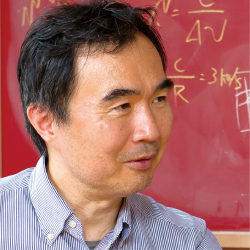
Satoshi Matsuoka
As a junior high school student in the 1970's when personal computers first hit the market, Satoshi Matsuoka became enthralled with software design. His interest continued to grow in graduate school. In 1996, he became an associate professor in the Department of Mathematical and Computing Sciences at Tokyo Tech's Graduate School of Information Science and Engineering. Since 2001, Matsuoka has been a professor at the Tokyo Tech Global Scientific Information and Computing Center (GSIC). In 2014, he received the Sidney Fernbach Award, the highest honor in the field of supercomputers. The professor and his team are the masterminds behind TSUBAME3.0, the supercomputer at GSIC.
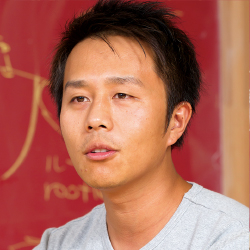
Satoshi Matsuoka
Pokémon GO game director Tatsuo Nomura was born in China in 1986. In 2009, he graduated from the Department of Computing Engineering at Shinshu University. In 2011, he obtained his master's degree from the Department of Mathematical and Computing Sciences at Tokyo Tech's Graduate School of Information Science and Engineering. In 2011, he joined Google Japan's engineering staff, where he was involved in the development of Google Maps and other major projects. In 2013, he transferred to Google's headquarters in the United States, where his performance at one of the company's April Fools' Day events — "Pokémon Challenge" — led to his being asked to head the Pokémon GO development project. He accepted and transferred to Niantic, Inc., a venture that spun off from Google in 2015.
Published: November 2017
. Any information published on this site will be valid in relation to Science Tokyo.



